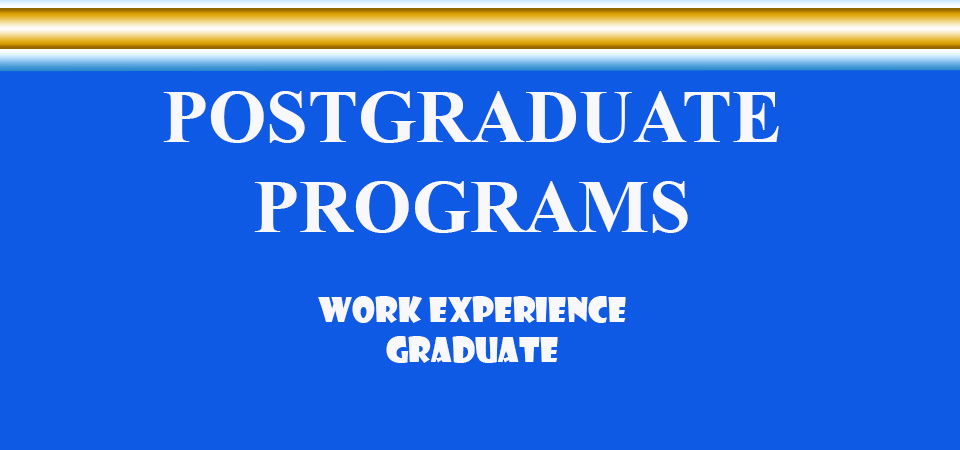 The School is as an academic organ directly responsible for ensuring high academic standard of qualitative and quantitative teaching and research. It has a highly developed competitive curricula aimed at meeting evolving departmental needs and new approaches to research in various areas. Following the “Hands On” policy of CUIB, the School of Business is divided into two arms:
The School is as an academic organ directly responsible for ensuring high academic standard of qualitative and quantitative teaching and research. It has a highly developed competitive curricula aimed at meeting evolving departmental needs and new approaches to research in various areas. Following the “Hands On” policy of CUIB, the School of Business is divided into two arms:
- The theoretical/teaching arm, headed by a Dean who coordinates the programmes.
- The practical arm which exists under the framework of the Centre for Entrepreneurship, Research and Innovation (CERI) of CUIB.
The School of Business also has partnerships with various companies and other Business schools to enhance their students experience academically
COMMON OBJECTIVES
All departments within the School of Business share certain objectives.
COMMUNICATION OBJECTIVE
Graduates will be able to effectively communicate their ideas in both written and oral form understanding that communication is a cooperative process.
ANALYTICAL OBJECTIVE
Graduates will be able to analyze situations and successfully determine cause and effect.
RESEARCH OBJECTIVE
Graduates will know how to use contemporary research tools as well as more traditional methods to locate and analyze information and develop knowledge.
PRESENTATION OBJECTIVE
Graduates will be able to format and present information of various kinds (both technical and nontechnical) and deliver that information in a manner most appropriate to the message and the audience.
PRACTICAL OBJECTIVE
. Graduates will have an understanding of the difference between theory and practice and how to extract from theory and extend its application to real-world situations.
LIBERAL ARTS OBJECTIVE
Graduates will recognize that a broad knowledge base is critical to their ability to fully contribute to their professions and communities.
LIFELONG LEARNING OBJECTIVE
Graduates will recognize that lifelong learning is essential to the ongoing process of professional and personal development.
The School of Business is an integral School which offers a Bachelor of Science Degree programme in six specialized academic disciplines
BACHELOR OF SCIENCE (BSC.) IN MANAGEMENT
“…Management is all and all". This phrase by an ardent scholar in the field, Peter F. Drucker reflects the holistic approach to management scholarship embraced by CUIB and epitomized by the B. Sc. Management programme. The programme is built on the manifested need of the professional business world for skilful but versatile manpower capable of operating within ad-hoc and fixed teams to customize products and services to satisfy the increasingly exigent customers.Read More…
BACHELORS OF SCIENCE (BSC.) IN HUMAN RESOURCE MANAGEMENT AND EMPLOYMENT RELATIONS:
Though its existence can be dated from the period of Industrial Revolution, the nomenclature (Human Resource Management was ascribed to the fields only in the 1980s with major contributions such as, enhancement of human performance, change management and keeping the employer on the right side of the law (The Association of Business Executives 2011).There is less interest in finding a universal paradigm or model for HRM that in understanding how it operates in diverse situations and what contributions it can make to the effectiveness and profitability of that organisation. No asset is perhaps more important to a nation than its human resources. It is the unique factor that makes the difference between an organisation, a community, a nation and others.Read More…
BACHELORS OF SCIENCE (BSC.) IN INSURANCE AND RISK MANAGEMENT
The world is becoming more and more business oriented as demonstrated by the multiplicity of large and small size businesses. These businesses acquire and use new technologies which are very much open to varied categories of risks, a phenomenon which is almost unavoidable. Management of risk is now a key issue for all major businesses. Risk takes many forms: fluctuations in currencies, interest rates and commodity prices; threats to physical assets from earthquake, windstorm and other natural perils; man-made threats of terrorism, fraud and criminality. These are in addition to the host of operational and financial risks that surround all commercial enterprises.Read More…
BACHELORS OF SCIENCE (BSC.) IN BANKING AND FINANCE
The Banking and Finance department offers courses leading to the award of a B.Sc. in Banking and Finance. The program is designed to inculcate in the students the ability to identify, analyse and offer solutions to complex financial problems that may arise from the technologically changing financial environment. The program also aims at cultivating in the student the basic work ethics that is required in a production economy which will result in self-reliance, sound moral discipline and individual actualisation.Read More…
BACHELOR OF SCIENCE IN MARKETING
“Marketing begins with consumers needs and ends with consumer satisfaction". This consumer centric philosophy expounded by modern marketing gurus like Kotler and Lancaster emphasises that the starting point of every business is the market; the focus is consumers’ needs, the means; Integrated Marketing and the ends; profit through consumer satisfaction. CUIB marketing program epitomises this Marketing Concept via the EoC paradigm that insists on the need to put the human person at the centre of economic activity and not profit. The need to put consumer first is still an extraneous variable in the Cameroon Marketing problem context.Read More…
BACHELOR OF SCIENCE (BSC.) IN ACCOUNTACY
The philosophy of the Accounting Programme is based on the predicament that academic and professional excellence is fundamental for any student to succeed in today’s environment. The academic programmes are designed to prepare students to be able to fit in a dynamic, complex, expanding and constantly changing accounting profession. The programme also takes into consideration the 21st century global economy which is increasingly sophisticated and interdependent. This is why in the School of Management Sciences, students start specialisation only in the fourth semester. The first three semesters are used to lay an interdependent broad base.Read More…
The School of Business offers a wide range of MBA programs through the School of Graduate Studies.These are programs designed to give students competitive advantage upon graduation.
Click Here to Read More
- The line of communication for each course is as follows: Course Delegate; Course Instructor; Director of Non-Degree programs.
- Students who do not attend and participate in 80% of the lectures and tutorial sessions of each course will not be examined for that course.
- A student validates a course only after being examined and awarded a C grade or higher by the examination committee.
- Faculty must ensure that students are duly registered for their courses before they are allowed in class and only such students will be allowed to take part in course activities including field trips, company visits, work placement, etc. Except the student is an observer.
- No student is allowed in class 20 minutes after the start of the class without prior notification. Misuse of school property will result to the withheld of student results until property has been replaced.
- Students with clashes on the course timetable should endeavor to meet both lecturers involved and workout the modalities through which they will attend and be assessed in both courses. These modalities must be submitted to the office in in writing.
- Faculty must submit CA marks to the school 2 weeks before the end of the semester and students are expected to verify their marks before exams. Complaints about wrong CA marks should be directed to the Departmental chair in writing and with supporting evidence.
- All students are expected to evaluate their faculty at the end of the academic year. Evaluation forms will be given to the each student a week before the start of the semester exams.
- End of Semester Examinations are managed by the office of Exams and Records and all faculty staff and students must adhere to the related policies of the office.
 With its mission to train professional servant leaders with Moral and Spiritual values who would contribute to the sustainable development of their communities, CUIB offers a variety of Scholarship Schemes aimed at impacting on the lives of future servant leaders and their Communities.These different scholarships are open to students of the School of Business. Eligibility Criteria and Renewal differ for each type of Scholarship.
With its mission to train professional servant leaders with Moral and Spiritual values who would contribute to the sustainable development of their communities, CUIB offers a variety of Scholarship Schemes aimed at impacting on the lives of future servant leaders and their Communities.These different scholarships are open to students of the School of Business. Eligibility Criteria and Renewal differ for each type of Scholarship.
Read About Undergraduate Sholarships
Postgraduate Scholarship Information


